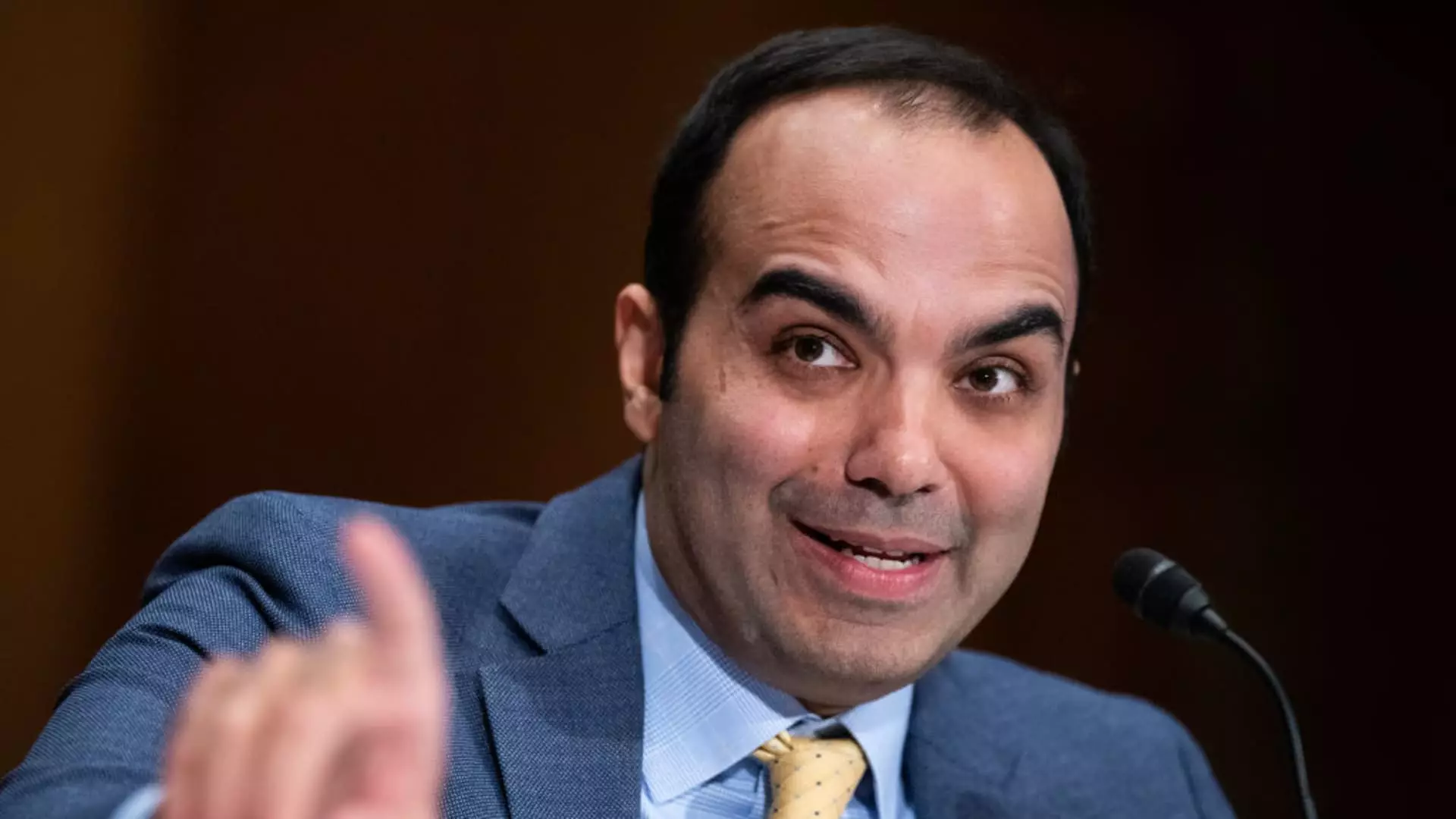On a recent Friday, the Consumer Financial Protection Bureau (CFPB) stepped into a contentious legal landscape by filing a lawsuit against the operators of the Zelle payment network and its three leading banking partners in the United States: JPMorgan Chase, Bank of America, and Wells Fargo. This action raises significant questions about consumer protection in an era where digital transactions are becoming increasingly commonplace. The CFPB’s allegations stem from claims that these banking giants have inadequately handled fraud complaints and failed to ensure reimbursements for victims, totaling an alarming loss of over $870 million since Zelle’s inception in 2017.
The allegations highlight the critical misalignment between the rapid growth of digital payment platforms and the responsibilities assumed by financial institutions to protect their customers. As people flock to services that promise convenience, such as Zelle – which allows for instantaneous peer-to-peer payments – it becomes crucial for banks to establish robust mechanisms for fraud prevention. The assertion that major banks rushed to launch Zelle out of fear of competition indicates a reactive rather than proactive approach that ultimately jeopardizes consumer safety.
CFPB Director Rohit Chopra’s statement underscores the urgency of the situation, indicating that the inability of these banks to implement adequate safeguards has turned Zelle into a vulnerable target for fraud. This assertion isn’t just a reflection on operational failures; it casts a shadow over the integrity of the banking industry’s commitment to consumer welfare. The impression formed by Chopra’s remarks suggests that financial institutions prioritized competitiveness over the establishment of a secure digital ecosystem. Just as crucial as competing with emerging payment applications is ensuring that customers feel safe and protected while using these financial tools.
The lawsuit serves as a larger commentary on the regulatory landscape governing digital finance. It raises the question: who holds the responsibility when victims fall prey to fraudulent activities? The fallout from this lawsuit could reshape the future of digital payment systems and the regulatory frameworks within which they operate.
Zelle’s Stance and Counterarguments
In response to the CFPB’s allegations, Zelle has struck a defiant tone, asserting its readiness to contest what it calls a “meritless lawsuit.” Zelle’s spokesperson, Jane Khodas, maintains that the platform is at the forefront of combating fraud with reimbursement policies that allegedly exceed legal requirements. This defensive posture suggests an underlying belief that the company’s operational framework for managing fraud cases is both adequate and effective. However, this stance invites skepticism given the stark statistics presented by CFPB, which raises concerns about the actual efficacy of the measures in place.
Despite Zelle’s claims, the financial losses experienced by consumers position the company’s statements as potentially superficial. The inconsistencies between Zelle’s assurances and the actual experiences of customers can diminish trust in the platform and by extension, its banking partners. This dynamic illustrates a larger issue in the fintech landscape where assurances of safety often clash with the practical reality of consumer experience.
The implications of this legal action extend far beyond Zelle and its immediate stakeholders. It opens up a crucial dialogue on the responsibilities of banks in the digital finance space and the overall effectiveness of consumer protection measures in an increasingly technology-driven world. As digital payment systems continue to evolve, regulatory bodies like the CFPB face the challenge of ensuring that consumer interests remain at the forefront of innovation in financial services.
Ultimately, this case serves as a vital reminder of the need for balance between innovation and consumer protection, as well as the diligence required from financial institutions to safeguard the interests of their customers. The coming months will be pivotal in determining how the banking industry adapts to these challenges, which could lead to more comprehensive protective measures for consumers engaging with rapidly evolving financial technologies.

